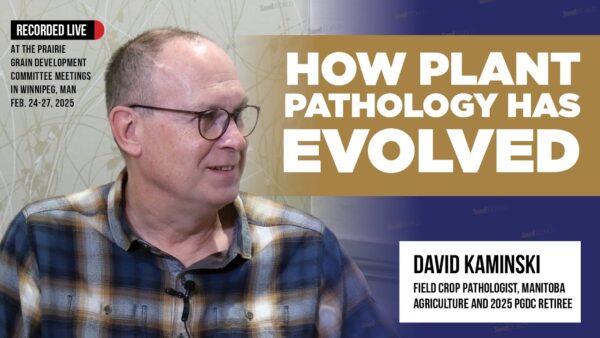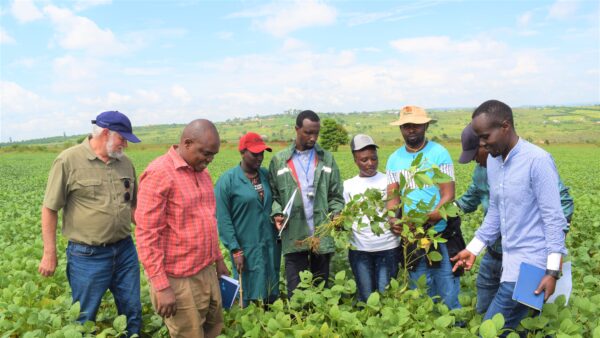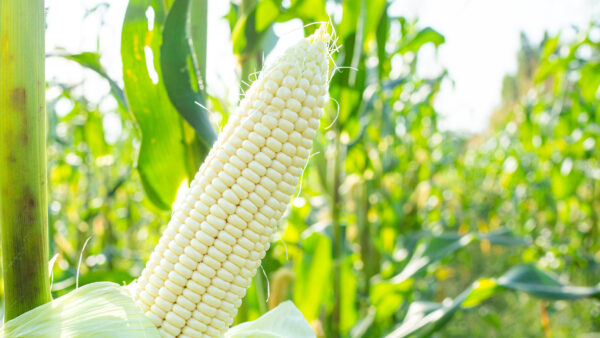Expiration Date
The expiration of Monsanto’s Roundup Ready patents is creating a wave of discussion and confusion in the seed industry, and is raising new questions for the entire sector.
This past August, Monsanto’s original patent on Roundup Ready soybeans expired in Canada. These changes will culminate in 2013, which represents the first opportunity for Canadian farmers to plant original Roundup Ready soybeans from saved seed. In the United States, this same trait technology remains under U.S. patent protection until 2014.
During the term of these patents, Monsanto has had the exclusive right to exclude others from making, using, offering for sale or selling the protected technology. Once these patents have expired, in theory, Monsanto will no longer have the right to exclude others from the protected technology. However, the regulatory mechanisms that must be maintained for the commercialization of the Roundup Ready traits may make it difficult for others to make, use or sell products incorporating the protected technology after the patents have expired.
The agricultural industry has tackled a variety of issues over the years, but no issue has produced as much discussion and confusion as the expiration of Monsanto’s various trait-based patents in the next couple of years. The expiration of Monsanto’s Roundup Ready or glyphosate patents creates interesting new questions for the industry.
• What happens between 2011 and 2013? What are the opportunities and obligations?
• What does the future hold for soybean production in Canada with Roundup Ready and other production technologies?
• Will the expiration of the Roundup Ready patents lead to generic Roundup Ready seed in the Canadian and U.S. markets?
• Who will pay for the maintenance of the regulatory approval in Canada, the United States and worldwide?
• How will the expiration of the Roundup Ready and other trait-based patents affect the import and export of seed into the North American marketplace?
Regulatory Background
Canada and the United States have solid regulatory systems—most of the traits that are incorporated into GM crops are required to be regulated by the Canadian Food Inspection Agency and the Health Canada Pest Management Regulatory Agency in Canada, and by the United States Department of Agriculture, the Environmental Protection Agency and the Food and Drug Administration in the United States. These regulatory bodies regulate the development, transportation, testing and disposal of plant material as an agriculture product. The PMRA and EPA will then regulate a GM product if there is a pesticide substance incorporated into the plant, such as the Bt gene.
During the life of the Roundup Ready patents, Monsanto has maintained the regulatory requirements of each agency for the introduction and commercialization of the Roundup Ready traits, including all of the data, in order to use these traits in Canada, the United States and international markets.
According to the article entitled “Roundup Ready Soybean Post-Patent Regulatory Commitment Extended through 2021” on the company’s website, Monsanto estimates that it spends approximately $1-1.5 million per year for the maintenance of regulatory approvals for a product. With the expiration of the last of the Monsanto Roundup Ready patents, Monsanto has stated that it will maintain the Roundup Ready regulatory approval globally through 2021.
System Needed for Maintaining Regulatory Expenses
Based on this statement, it appears that Roundup Ready seed will still be available until 2021. Nevertheless, it is still unclear whether other seed companies will be able to produce and sell generic versions after this point. In addition, who will maintain the regulatory approval after 2021? Will smaller seed companies be able to afford the costs of the maintenance of regulatory approval, and will they be able to produce the data necessary for regulatory compliance based on the current system?
The issue of patent expiration and the maintenance of the regulatory approval for GM seed is very confusing and leads to the question: isn’t there a simple mechanism for GM seed to be made available for companies to use once a patent expires, without the need for large regulatory maintenance expenses?
A similar market that comes to mind is the pharmaceutical industry. Obviously, the pharmaceutical industry has dealt with similar issues over the years with the regulatory requirements for the development and commercialization of drugs.
Over the years, the pharmaceutical industry has developed a system with the U.S. regulatory agencies to allow for generics to enter the marketplace once a patent has expired. The Drug Price Competition and Patent Term Restoration Act, more commonly known as the Hatch-Waxman Act, allows the FDA to approve applications to market generic versions of brand-name drugs released after 1962 without repeating efficacy and safety research.
A generic drug maker must simply submit an application after a patent has expired that basically states that the generic drug maker will be creating an identical drug to the patented drug that went through the regulatory approval process.
There are of course obvious differences between the pharmaceutical and agriculture industries which may create new hurdles for the development and implementation of similar regulatory mechanisms for the agriculture industry. However, it is yet to be determined whether the U. S. government will develop some sort of similar mechanism to the Hatch-Waxman Act to aid in the introduction of generic GM seed into the marketplace after a given trait-based patent expires.
In the end, in spite of the fact that Canada and the United States have long histories as world leaders for innovation and the introduction of new technologies, the effect of the expiration of the trait-based patents on North America and the world is a complete unknown. Obviously, there does not appear to be a silver bullet to the complexity of the issues. The next couple of years will be interesting for the agriculture industry.
Barbara Campbell and James M. Weatherly
Editor’s Note: Barbara Campbell and James M. Weatherly are attorneys in the Intellectual Property, Technology and Media Department of Holme Roberts & Owen LLP in Denver, Colo. Campbell and Weatherly have over 11 years of combined experience in prosecuting agriculture and biotechnology-based patents, plant patents, plant breeders’ rights and trademarks throughout the world.












